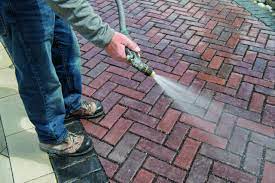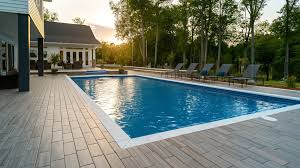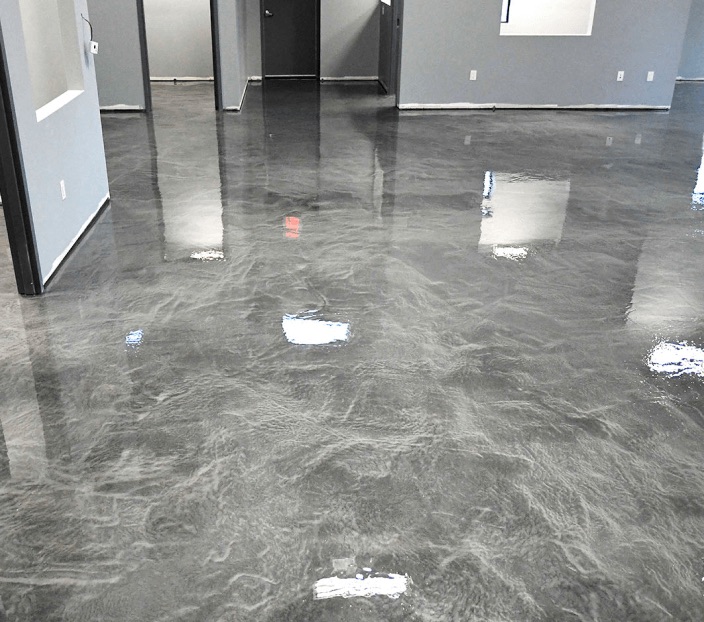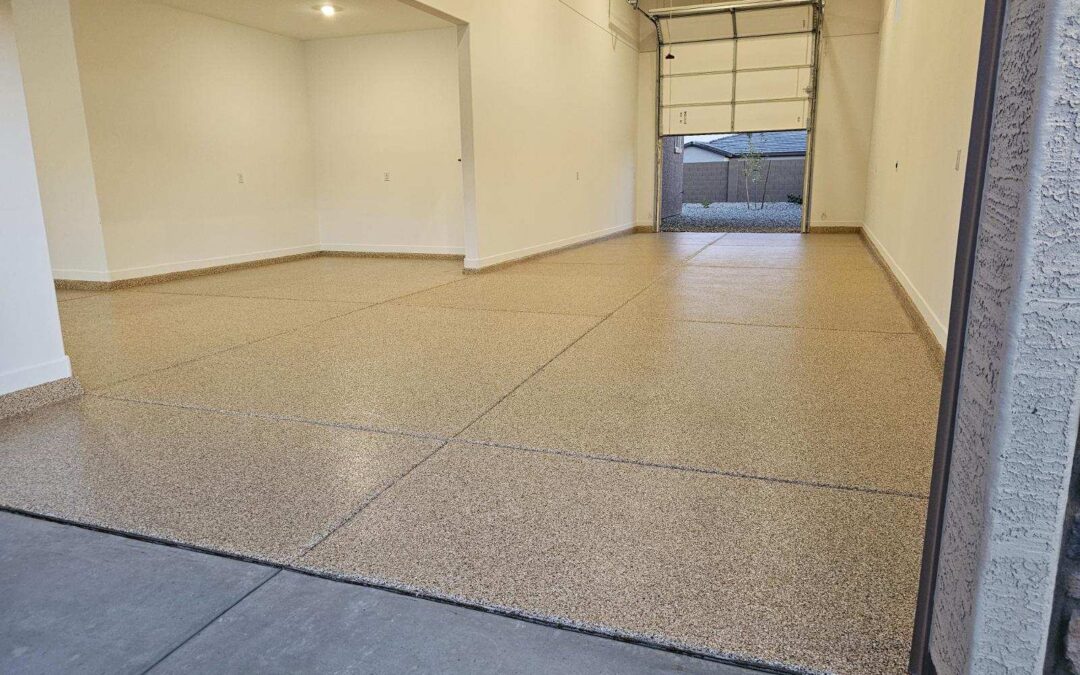Industrial Epoxy Flooring: Costs, Systems, and Contractor Insights
Why Choose Industrial Epoxy Flooring?
Industrial spaces are some of the most demanding environments when it comes to flooring solutions. From heavy machinery and constant foot traffic to chemical spills and temperature fluctuations, the floors in these areas endure a significant amount of stress. Industrial epoxy flooring provides the perfect combination of durability, versatility, and aesthetics to meet these challenges head-on.
Whether you’re managing a warehouse, factory, or laboratory, industrial epoxy flooring systems offer an ideal solution tailored to your specific needs. Let’s explore the key reasons why epoxy is the go-to choice for industrial spaces.
Durability: Built to Handle Heavy Loads, Machinery, and Foot Traffic
Industrial floors bear the weight of forklifts, pallets, conveyor belts, and heavy-duty equipment daily. Epoxy flooring is designed to withstand this level of abuse without cracking, chipping, or wearing down. The hardened surface of epoxy resin ensures that even under extreme conditions, the floor maintains its structural integrity.
Compared to traditional concrete floors, which can crack under constant pressure or wear unevenly, epoxy floors distribute weight more effectively. This means your facility’s floor will remain functional and visually appealing for years, even in the busiest environments.
Chemical Resistance: Ideal for Warehouses and Facilities Exposed to Chemicals
Chemical spills are a common occurrence in industrial settings, but they can cause significant damage to unprotected floors. Epoxy resin industrial flooring forms a non-porous, impermeable barrier that resists chemicals, oils, solvents, and cleaning agents. This protective layer prevents substances from seeping into the floor and causing stains or structural degradation.
For facilities like laboratories or chemical plants, this resistance is not just a luxury but a necessity. With industrial epoxy flooring systems, your floors can handle even the harshest chemicals without sacrificing performance.
Seamless Surface: Promotes Cleanliness and Hygiene in Industrial Environments
In spaces like food processing plants or pharmaceutical facilities, maintaining a hygienic environment is critical. Traditional flooring options often have seams, cracks, or grout lines that can trap dirt, bacteria, and other contaminants. Epoxy flooring eliminates these issues with its seamless, smooth surface.
Additionally, epoxy floors are easy to clean and disinfect, ensuring compliance with health and safety regulations. Dust, spills, and debris can be quickly wiped away, making them a low-maintenance option for high-standards environments.
Cost-Effective: Long-Lasting with Minimal Maintenance Required
While the cost of epoxy flooring for industrial use may seem high initially, the long-term savings make it a wise investment. Traditional flooring options like concrete or vinyl may require frequent repairs, replacements, or intensive maintenance over time. Industrial epoxy flooring, on the other hand, offers exceptional durability and resistance, reducing the need for costly upkeep.
By investing in a high-quality epoxy system, you’re ensuring that your floors will remain operational and visually appealing for decades with minimal intervention.
Cost of Industrial Epoxy Flooring
The industrial epoxy flooring cost is influenced by several factors, but on average, it ranges from $4 to $12 per square foot. While this pricing might vary depending on the specifics of your project, it is a competitive option when considering its durability, longevity, and customization potential.
Factors Influencing Costs
1. Facility Size and Floor Condition
Larger facilities benefit from economies of scale, as contractors can often offer discounts for bulk installations. However, the condition of the existing floor can significantly impact costs. Cracked, uneven, or damaged concrete may require extensive preparation, such as leveling or repairs, which can increase the overall expense.
2. Type of Epoxy System
Not all epoxy flooring systems are created equal. Basic resin-based systems are more affordable, while high-performance, multi-layered options with added features like anti-slip coatings or enhanced chemical resistance can drive up costs. For facilities with specialized needs, investing in a more advanced system often delivers greater long-term value.
3. Additional Features
Custom features like safety markings, anti-slip textures, or UV-resistant finishes can elevate the cost of installation. While these add-ons may increase the initial expense, they enhance the functionality and safety of the flooring, particularly in high-risk areas.
Estimated Costs
- Basic Epoxy Resin Flooring: $4–$7 per square foot
- High-Build Epoxy Coatings: $6–$10 per square foot
- Premium Metallic or Decorative Systems: $10–$15 per square foot
For a typical industrial facility with 10,000 square feet, the total cost can range from $40,000 to $150,000, depending on the epoxy system and additional requirements.
Popular Industrial Epoxy Systems
Choosing the right epoxy flooring system is essential to meet the unique demands of your facility. Here are some of the most popular options:
Epoxy Resin Flooring
Epoxy resin flooring is the backbone of industrial epoxy solutions. Durable, versatile, and cost-effective, it provides a smooth, hard-wearing surface suitable for warehouses, factories, and storage facilities. Its chemical resistance and easy maintenance make it a practical choice for a wide range of applications.
High-Build Epoxy Coatings
High-build epoxy coatings are designed for heavy-duty use. With a thicker application, these coatings provide an added layer of protection against impacts, abrasions, and wear. They are ideal for areas with heavy machinery or high levels of foot traffic, where durability is a top priority.
Self-Leveling Epoxy Systems
Older facilities often have uneven or damaged floors, posing a challenge for traditional flooring options. Self-leveling epoxy systems create a seamless, level surface that eliminates imperfections. This option is particularly beneficial for facilities that require precise floor leveling, such as laboratories or manufacturing plants.
Anti-Slip Epoxy Coatings
Safety is paramount in industrial environments, especially in areas prone to spills or moisture. Anti-slip epoxy coatings incorporate textured additives to improve traction, reducing the risk of slips and falls. These coatings are commonly used in loading docks, production areas, and other high-traffic zones.
Comparison Table: Industrial Epoxy Flooring vs. Alternatives
Feature | Industrial Epoxy Flooring | Polished Concrete | Vinyl Flooring |
Durability | High | Very high | Moderate |
Cost | $4–$12/sq. ft. | $3–$8/sq. ft. | $2–$5/sq. ft. |
Chemical Resistance | Excellent | Moderate | Low |
Customization Options | Safety markings, anti-slip coatings | Limited to texture and color | Minimal |
Best For | Warehouses, factories, labs | Industrial, modern spaces | Light-duty areas |
While polished concrete offers similar durability, it lacks the chemical resistance and customization options of epoxy. Vinyl flooring, though budget-friendly, is not as robust or long-lasting, making epoxy the superior choice for heavy-duty applications.
Frequently Asked Questions
How much does it cost to epoxy resin a floor?
The cost of applying epoxy resin flooring ranges from $4 to $12 per square foot, depending on the type of epoxy system, floor preparation needs, and additional features like anti-slip coatings or chemical resistance.
Why are epoxy floors so expensive?
Epoxy flooring requires meticulous preparation, including surface cleaning, repairs, and leveling. High-quality materials and professional installation also contribute to the cost. However, the durability and low maintenance make it a cost-effective investment over time.
How to calculate square feet?
To calculate square footage, measure the length and width of the area in feet and multiply the two numbers. For example, a 20 ft. by 50 ft. space equals 1,000 square feet.
How much epoxy for a 1,000 sq. ft. floor?
For a 1,000 sq. ft. floor, you’ll typically need about 10 gallons of epoxy for a single coat. Multiple coats or thicker applications may require additional material.
How much will 1 gallon of epoxy cover?
One gallon of epoxy covers approximately 100–150 square feet per coat, depending on the application thickness and the type of epoxy used.
Industrial epoxy flooring offers an unbeatable combination of durability, safety, and style, making it a top choice for warehouses, factories, and laboratories. Its chemical resistance, seamless surface, and low maintenance requirements set it apart from other flooring options, while its ability to be customized ensures it meets the unique demands of any industrial environment.
Whether you’re managing a high-traffic warehouse or a specialized laboratory, investing in industrial epoxy flooring systems is a decision that pays off in both performance and aesthetics. With professional installation and the right system for your needs, your industrial space will have a flooring solution built to last for decades.

The Ultimate Guide to Washing and Sealing Your Driveway and Pavers
Your driveway and pavers are not just functional surfaces; they’re integral to your home’s exterior aesthetic. Over time, dirt, stains, cracks, and weather damage can turn even the most pristine driveways into eyesores. Fortunately, pressure washing and sealing can...

Revamp Your Pool Deck: Resurfacing Options and Creative Ideas
A pool deck is the centerpiece of any outdoor oasis. It’s where summer memories are made, from splashing kids and relaxing afternoons to lively evening gatherings under the stars. However, over time, even the sturdiest pool decks can lose their charm, becoming...

Elevate Your Space with Metallic Epoxy Flooring for Garages and Basements
The Beauty and Durability of Metallic Epoxy Flooring Metallic epoxy flooring is a revolution in flooring design. It takes the concept of a functional surface and elevates it into an art form, seamlessly blending style with practicality. Whether you’re transforming a...

Transform Your Garage in Arizona with Durable and Stylish Epoxy Floors
Enhance Your Garage with Epoxy Flooring Arizona’s sweltering heat, dust storms, and heavy foot traffic can wreak havoc on traditional garage floors. But what if your garage could become a sanctuary of style and durability instead of a space riddled with cracks,...

Unlock the Secrets of Pool Deck Resurfacing: Cost, Contractors, and Options for Your Outdoor Retreat
A pool deck is more than just an extension of your pool area; it's a focal point of your outdoor space. Over time, however, pool decks can deteriorate due to constant exposure to sun, water, and heavy foot traffic. Pool deck resurfacing offers an excellent way to...
